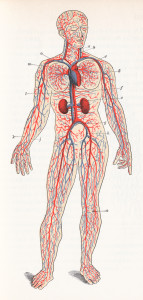 Emotions connect us as human beings. We can be influenced by someone else’s emotions and often tend to unconsciously mirror the emotions around us. Past research has shown that different cultures express or suppress certain emotions according to their traditions.
Emotions connect us as human beings. We can be influenced by someone else’s emotions and often tend to unconsciously mirror the emotions around us. Past research has shown that different cultures express or suppress certain emotions according to their traditions.
However, researchers in Finland, led by Lauri Nummenmaa of Aalto University’s School of Science in Espoo, have found that emotional outward expression appears to vary little across cultures. That is when cultures do express emotions they seem to not vary much. This is different from cultures not normally expressing emotions due to the norms of a culture.
The Los Angeles Times gives examples of this: with anger, fear or surprise, our heartbeat picks up in readiness for flight or fight, and so our chest feels tight. The muscles in our arms and legs feel clenched in anger, but in sadness, they feel limp. Happiness spreads its warmth even across the hips and genitals, but those areas typically go cold when we feel sad, angry or disgusted.
The findings compile information from five different experiments ranging in size from 32 to 305 subjects. The participants linked seven different emotions with the same somato-sensory experiences with such consistency, it could not be a matter of chance.
An interesting fact is that the pairings participants made were consistent whether they were asked to react to emotionally suggestive words or to read short stories and view films that conjured strong emotional responses. Even when viewing photographs of a person’s face conveying a specific emotion, subjects drew maps of that person’s likely feelings that were consistently similar.
This suggests, according to the researchers, that people with emotional processing difficulties stemming, say, from anxiety, depression or psychopathy, may also “feel” their emotions in places different from those in good mental health. “Topographical changes in emotion-triggered sensations in the body could thus provide a novel biomarker for emotional disorders.”
Even across the linguistic barriers, there was 70% agreement among participants on where in the body emotions are felt. With more complex emotions such as pride, shame, envy, depression, contempt, anxiety and love–the study’s participants did not draw somato-sensory maps with as much overlap. But they were still similar enough to beat chance.
What’s Your Perspective on Emotional Displays Across Cultures?

 By Dr. David Matsumoto and Dr. Hyi Sung Hwang
By Dr. David Matsumoto and Dr. Hyi Sung Hwang